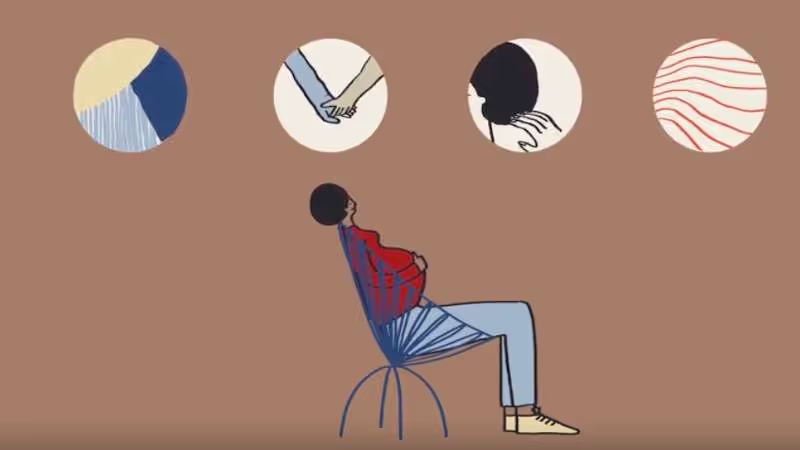Last week, I posed a question on Facebook, “Why is Modern Love So Hard?” You responded with amazing reflections, questions, and stories. For today’s article, I want to focus on one set of these responses.
I want to speak to those of you who view commitment as a loss of self.
The idea that we lose ourselves in the presence of our partner is deeply ingrained in the modern perception of love, particularly in the United States. As almost all of our communal institutions give way to a heightened sense of individualism, we look more frequently to our partner to provide the emotional and physical resources that a village or community used to provide.
Is it any wonder that, tied up in relying on a partner for compassion, reassurance, sexual excitement, financial partnership, etc. that we end up looking to them for identity or, even worse, for self-worth?
Combine that with the commodification of love, the increasingly omnipresent “is there somebody better?”, and we have a recipe for decreasing the perceived “cost” of love. All the while increasing our expectations on our partnerships, and even adding more to the list, without really understanding what we’re asking.
This year, I’ve made it a point to take notes at any weddings I attend about the marital vow. I think this single speech is so reflective of the way our expanding expectations have gotten out of control. Here I offer you a poignant, if exaggerated, example of how these typically go:
“I promise that I will always be there for you, honest with you, kind, patient and forgiving. For you are my lover and my teacher and I honor the divinity in you,” says the groom, with an uncharacteristic quiver in his voice.
“I promise to be your greatest fan and your toughest adversary, your partner in crime, and your consolation in disappointment,” responds his bride, in almost perfect cadence. With unquestionable sincerity, he continues, “I promise to tell you everything, to have no secrets except those we share.”
“I promise faithfulness, respect, and self-improvement,” she declares. To which, he one-ups her by replying, “I will not only celebrate your triumphs, I will love you all the more for your failures.” Smiling through her tears, she says, “I promise never to wear heels so you won’t feel short. And to comfort you when your football team loses and drink with you when they win.”
Taking a small box of her favorite chocolates from his best man, he says, “I promise to always bring these at that time of the month, and never to ask you if it is that time of the month.” Having promised each other the heavens and the earth, they kiss to rapturous applause.
This litany of expectations is a grand setup for failure. Once we strayed because marriage was not supposed to deliver love and passion. Today we stray because marriage fails to deliver the love, passion, and undivided attention it promised.
These expectations are extremely difficult for us to provide to one another because they are contradictory, or even in some cases incompatible. I write in The State of Affairs that, “contained within the small circle of the wedding band are vastly contradictory ideals. We want our chosen one to offer stability, safety, predictability, and dependability… and we want that very same person to supply awe, mystery, adventure, and risk.”
So, what is the solution? How can we commit to another without losing ourselves in trying to meet these vast expectations? How can we be in a fulfilling partnership that also helps us grow as individuals?
Here’s a place to start.
We can think more clearly about our expectations from a partner. Research shows that people who have more social resources, and more people to talk to about various issues in their lives, do better in marriage. So in what areas do we want to invest with our partners, and in which areas do we need to invest in ourselves and our personal networks?*
And once we’ve had a chance to think more clearly about our expectations, how do we meet the expectations that we’ve set for ourselves and our relationships?
We can stop thinking of love, desire, and relationships as commodities. They are not. When a jacket doesn’t meet our expectations, we can easily purchase another one. The same is not true about our relationships. We have to work to make our expectations come to reality, setting expectations is only the start.
The next step is to actually go about achieving them by investing the time, patience, and space necessary with our partners. This process might not be perfect, but aside from the moment we recite them, neither are our vows.
*Two books that I recommend from guests of mine on the Sessions Clinical Education platform are:
- The All or Nothing Marriage by Eli Finkel. Eli, a psychological scientist, goes into some depth about the research behind modern marriage, focusing in particular on the increasing set of expectations behind marriage and the ideology behind the institution.
- Loving Bravely by Alexandra Solomon. Alexandra is the founder of Marriage 101, a course at Northwestern University that teaches undergraduates how to prepare for the types of relationships they want to have. Her book is a wonderfully written insight into the process of developing “relational self-awareness”, the prerequisite to being in a healthy relationship.
What challenges do you see in modern love? And where are you at in the journey? I’d love to hear and respond to your stories. Visit out Facebook post pinned to the top of my Facebook page to offer your insights or share your experiences with the community.












_text-2.avif)
















.svg)





